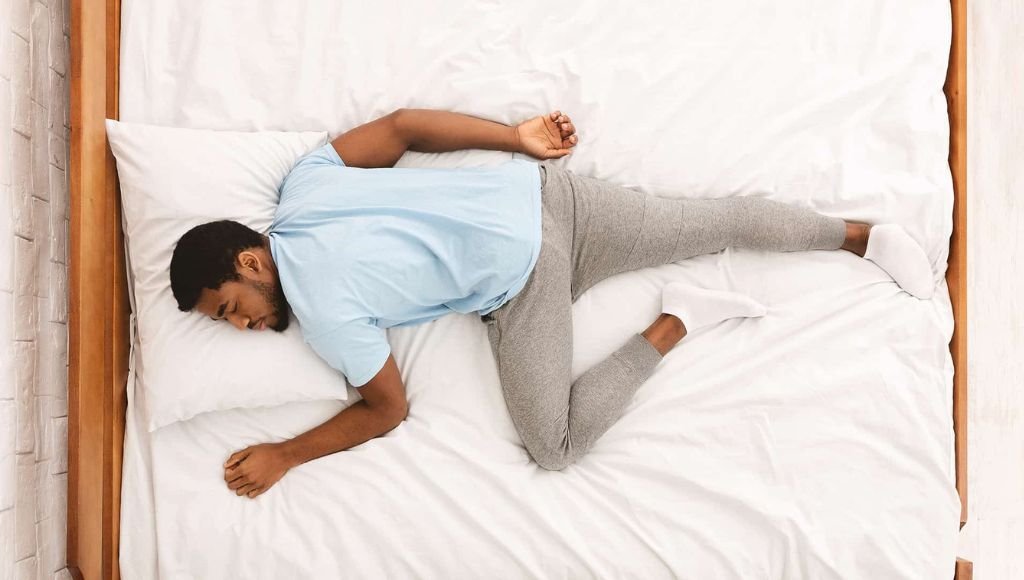Kanpur, 16th August 2024, Many people think sleeping on their front is comfortable, but experts are now warning about the risks involved. On Friday, chiropractors and physiotherapists highlighted that this sleeping position can lead to several health problems.
It turns out that even if you’re getting a solid eight hours of sleep every night if you’re on your stomach, you could be setting yourself up for issues ranging from neck and back pain to breathing and heart problems.
Dr. Tony Nalda, the leader of the Scoliosis Reduction Center, is one of the specialists raising concerns. He points out that front sleeping forces your head to turn to one side so that you can breathe. This position can strain the muscles in your neck, leading to tightness, inflammation, and pain.
Overinvolved in Your College Kid’s Life? Here’s Why Letting Go Could Be the Best Gift You Can Give
Over time, this can contribute to chronic neck issues, which are hard to fix once they’ve set in. Dr. Nalda also explains that sleeping on your stomach can flatten the natural curve of your spine, putting pressure on your lower back. “If you already have neck and back problems, sleeping in this position is almost guaranteed to make them worse,” he says.
Breathing can also be negatively impacted by this sleeping position. The posture compresses the diaphragm, which makes it more difficult to take deep breaths while you sleep.
This reduced oxygen intake can disrupt the quality of your sleep, leaving you feeling less rested in the morning. Additionally, front sleeping places extra pressure on your spine, which can strain your vertebrae and surrounding muscles.
Heart health is another area of concern. Dr. Nalda explains that when you sleep on your front, you press on your chest, which makes it harder for your heart to circulate blood efficiently.
Over time, this can increase the risk of cardiovascular issues, particularly for those who already have heart-related problems. Difficulty breathing deeply due to this sleeping position can also lead to higher blood pressure, which is something most people want to avoid.
Even the nervous system can be affected. Sleeping on your front forces your neck into a twisted position, which can trigger migraines, tension headaches, and other neurological symptoms.
Dr. Nalda warns that this unnatural angle can pinch nerves, causing discomfort, numbness, or tingling in the arms and hands. This can make it difficult to get comfortable and fall asleep, leading to a vicious cycle of restless nights and groggy mornings.
If you’re concerned about the impact of your sleeping position on your health, experts suggest switching to a back or side position. Dr. Nalda recommends sleeping on your back as the best option, as it supports the natural curve of the spine and minimizes pressure on the joints.
Side sleeping is another good option, especially for those who want to improve heart health and reduce snoring.
SoftBank’s Big Wins in India’s Thriving IPO Market Are Turning Heads
For those who find it hard to stay off their stomachs, a body pillow can be a helpful tool. A body pillow provides extra support and helps prevent you from rolling onto your stomach during the night. It can also make it easier to stay in a side or back position, which are healthier options for most people.
Physiotherapist Karen Beattie from Vita Health Group agrees that certain sleep positions can support the body and reduce back pain. She emphasizes that there isn’t one perfect sleeping position for everyone, but there are simple tricks you can try to relieve pain and discomfort.
If you sleep on your side, drawing your legs slightly towards your chest and placing a pillow between your legs can help align your spine, pelvis, and hips. This position also prevents your upper leg from pulling forward and twisting your torso, which can strain your lower back. Beattie advises against tucking your chin too much, as this can interfere with the natural curve of your neck.
For back sleepers, Beattie suggests placing a pillow under your knees to help relax your back muscles and maintain the curve of your lower back. She also recommends using a small, rolled-up towel under the small of your back to support the spine. These adjustments can help keep the spine in a neutral position, reducing the likelihood of waking up with aches and pains.
Harris Unveils Bold Economic Plans for 2024 – Will Populist Proposals Win Over Voters?
If you absolutely must sleep on your front, Beattie advises placing a pillow under your hips and lower stomach to relieve pressure on your lower back. Adding a pillow under your head might also help reduce the strain on your neck, though she stresses that it’s important to find a pillow that provides the right level of support for your unique needs.
Some people may need a thicker pillow, while others will do better with something thinner. It’s all about finding what works for you.



